
Best Science/Nature Books Published This Summer
This content contains affiliate links. When you buy through these links, we may earn an affiliate commission.
Forget the amorphous, ridiculous concept of a “beach read” — summer is the time for great science! Here are some of my favorite books about science and nature published in the summer of 2016.
On the science side:
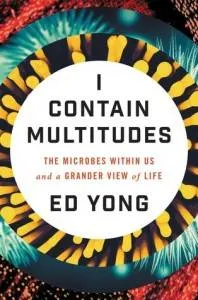 I Contain Multitudes: The Microbes Within Us and a Grander View of Life by Ed Yong (8/9 from Ecco)
It isn’t just any writer who could take the subject of microbes and make it fascinating, engrossing, and even funny. Microbes are mind-bogglingly ubiquitous and necessary to life as we know it. This book covers topics like the history of microbial research, the place of microbes in the human body, the co-evolution of microbes and animals, and the potential future of microbial engineering. Yong approaches a complex topic with enthusiasm, making it a compelling, enjoyable read.
I Contain Multitudes: The Microbes Within Us and a Grander View of Life by Ed Yong (8/9 from Ecco)
It isn’t just any writer who could take the subject of microbes and make it fascinating, engrossing, and even funny. Microbes are mind-bogglingly ubiquitous and necessary to life as we know it. This book covers topics like the history of microbial research, the place of microbes in the human body, the co-evolution of microbes and animals, and the potential future of microbial engineering. Yong approaches a complex topic with enthusiasm, making it a compelling, enjoyable read.
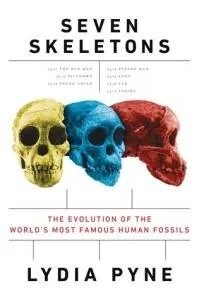 Seven Skeletons: The Evolution of the World’s Most Famous Human Fossils by Lydia Pyne (8/16 from Viking)
This is the story of our search for our human ancestors as told by our seven most famous fossils, such as the Neanderthal of La Chapelle, the Piltdown hoax, the Peking man, the Tuang Child, and Lucy. Each chapter of the book gives the reader the “biography” of a different famous skeleton, exploring the discovery of the fossils, the impact of each fossil on our understanding of human evolution, the cultural significance of each find, the ways that the fossils are understood by and displayed to the public.
Seven Skeletons: The Evolution of the World’s Most Famous Human Fossils by Lydia Pyne (8/16 from Viking)
This is the story of our search for our human ancestors as told by our seven most famous fossils, such as the Neanderthal of La Chapelle, the Piltdown hoax, the Peking man, the Tuang Child, and Lucy. Each chapter of the book gives the reader the “biography” of a different famous skeleton, exploring the discovery of the fossils, the impact of each fossil on our understanding of human evolution, the cultural significance of each find, the ways that the fossils are understood by and displayed to the public.
 The Unknown Universe: A New Exploration of Time, Space, and Modern Cosmology by Stuart Clark (7/5 from Pegasus Books)
Cosmology is a complicated, mind-bending problem. When I read about theories of space and time I admit that usually my eyes glaze over and my brain quickly hits a sticking point. Clark’s book, however, does a superb job making cutting edge new discoveries about the universe understandable to the lay reader. This book takes the issues on the forefront of the field, puts them in historical context for the reader, and explains their importance. It is extremely readable and entertaining, which is no small feat considering the subject matter.
The Unknown Universe: A New Exploration of Time, Space, and Modern Cosmology by Stuart Clark (7/5 from Pegasus Books)
Cosmology is a complicated, mind-bending problem. When I read about theories of space and time I admit that usually my eyes glaze over and my brain quickly hits a sticking point. Clark’s book, however, does a superb job making cutting edge new discoveries about the universe understandable to the lay reader. This book takes the issues on the forefront of the field, puts them in historical context for the reader, and explains their importance. It is extremely readable and entertaining, which is no small feat considering the subject matter.
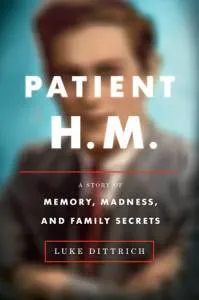 Patient H.M.: A Story of Memory, Madness, and Family Secrets by Luke Dittrich (8/9 from Random House)
This is the story of the most famous patient in the history of psychology and neuroscience, Patient H.M., or Henry Molaison. In 1953, suffering from chronic epilepsy, Molaison was one of many patients to receive a radical lobotomy in an attempt to stop his seizures. Instead, Molaison wound up unable to create new memories. This is the story of Patient H.M. but also the story of the lobotomy as a neurosurgical technique, the use of human research subjects, and the history treatment of those suffering from mental illnesses and disease. The author’s personal connection to the content adds a compelling twist: Dittrich’s own grandfather was the surgeon who performed the botched operation on Patient H.M.
Patient H.M.: A Story of Memory, Madness, and Family Secrets by Luke Dittrich (8/9 from Random House)
This is the story of the most famous patient in the history of psychology and neuroscience, Patient H.M., or Henry Molaison. In 1953, suffering from chronic epilepsy, Molaison was one of many patients to receive a radical lobotomy in an attempt to stop his seizures. Instead, Molaison wound up unable to create new memories. This is the story of Patient H.M. but also the story of the lobotomy as a neurosurgical technique, the use of human research subjects, and the history treatment of those suffering from mental illnesses and disease. The author’s personal connection to the content adds a compelling twist: Dittrich’s own grandfather was the surgeon who performed the botched operation on Patient H.M.
 Grunt: The Curious Science of Humans at War by Mary Roach (6/7 from W.W. Norton and Company)
The science of war gets the full Mary Roach treatment: how does the military design uniforms that can withstand the heat of battle? How do medics prepare to handle the chaos and gore of treating wounds during combat? How do soldiers handle their – ahem – bodily functions in the field? Can bad smells be used as a weapon? The answer to this, and loads more questions you never thought to ask, can be found here. Also check out Book Riot’s own Kim Ukura’s interview with Mary Roach about the book.
Grunt: The Curious Science of Humans at War by Mary Roach (6/7 from W.W. Norton and Company)
The science of war gets the full Mary Roach treatment: how does the military design uniforms that can withstand the heat of battle? How do medics prepare to handle the chaos and gore of treating wounds during combat? How do soldiers handle their – ahem – bodily functions in the field? Can bad smells be used as a weapon? The answer to this, and loads more questions you never thought to ask, can be found here. Also check out Book Riot’s own Kim Ukura’s interview with Mary Roach about the book.
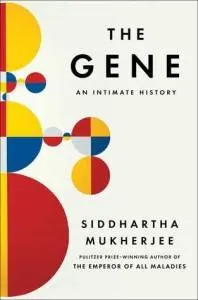 The Gene: An Intimate History by Siddhartha Mukherjee (5/17 from Scribner)
Okay *technically* this book came out in May, not in the summer, but I am going to give it a pass because it is just that good. I’ll be brief, but if you are interested in books about science, this one cannot be missed. Mukherjee takes a deep dive into the history of our understanding of genetics, bringing us all the way up to present day in this epic, incredible book.
On the nature side:
The Gene: An Intimate History by Siddhartha Mukherjee (5/17 from Scribner)
Okay *technically* this book came out in May, not in the summer, but I am going to give it a pass because it is just that good. I’ll be brief, but if you are interested in books about science, this one cannot be missed. Mukherjee takes a deep dive into the history of our understanding of genetics, bringing us all the way up to present day in this epic, incredible book.
On the nature side:
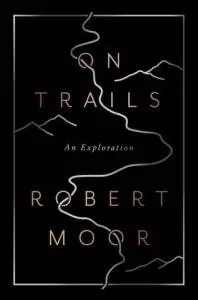 On Trails: An Exploration by Robert Moor (7/12 from Simon and Schuster)
While hiking the Appalachian Trail in 2009, Moor got to thinking about the nature of trails themselves. How are they made? How do they survive and endure? What makes us follow them? Moor combines science, history, technology, and philosophy on his thoughtful journey to understand the trails. It is profound and interesting, it dwells on big questions and brings together an engaging collections of facts and stories.
On Trails: An Exploration by Robert Moor (7/12 from Simon and Schuster)
While hiking the Appalachian Trail in 2009, Moor got to thinking about the nature of trails themselves. How are they made? How do they survive and endure? What makes us follow them? Moor combines science, history, technology, and philosophy on his thoughtful journey to understand the trails. It is profound and interesting, it dwells on big questions and brings together an engaging collections of facts and stories.
 Welcome to the Goddamn Ice Cube: Chasing Fear and Finding Home in the Great White North by Blair Braverman (7/5 from Ecco)
Braverman tells her story of leaving California at age 19 to follow the call of the North, a brutal landscape not usually thought of as the realm of a young woman. This is a story of independence, of growing up and coming into one’s own, of being a woman in a man’s world, all set against the unforgiving arctic. It is full of dogsleds, glaciers, and freezing cold waters. It is entertaining and wild and deeply personal.
Welcome to the Goddamn Ice Cube: Chasing Fear and Finding Home in the Great White North by Blair Braverman (7/5 from Ecco)
Braverman tells her story of leaving California at age 19 to follow the call of the North, a brutal landscape not usually thought of as the realm of a young woman. This is a story of independence, of growing up and coming into one’s own, of being a woman in a man’s world, all set against the unforgiving arctic. It is full of dogsleds, glaciers, and freezing cold waters. It is entertaining and wild and deeply personal.
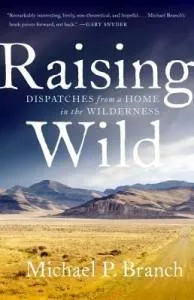 Raising Wild: Dispatches from a Home in the Wilderness by Michael Branch (8/23 from Roost Books)
This book is a refreshing departure from the nature writing trope of man goes out to wilderness, lives alone in solitude. Here Branch reflects on living in the wilderness with a family and raising daughters. As Branch puts it, “In perpetuating an understanding of wildness that depends upon the far-flung exploits of men heroically working alone (or with other men), we overlook the wildness that is inherent both to parenting and to children.” Set against the rough beauty of Nevada’s Great Basin Desert, Branch winds together family and landscape.
Raising Wild: Dispatches from a Home in the Wilderness by Michael Branch (8/23 from Roost Books)
This book is a refreshing departure from the nature writing trope of man goes out to wilderness, lives alone in solitude. Here Branch reflects on living in the wilderness with a family and raising daughters. As Branch puts it, “In perpetuating an understanding of wildness that depends upon the far-flung exploits of men heroically working alone (or with other men), we overlook the wildness that is inherent both to parenting and to children.” Set against the rough beauty of Nevada’s Great Basin Desert, Branch winds together family and landscape.
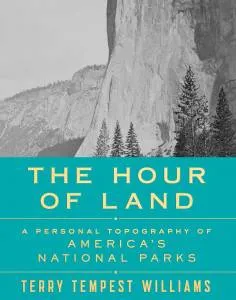 The Hour of Land: A Personal Topography of America’s National Parks by Terry Tempest Williams (5/31 from Sarah Crichton Books)
I’m cheating again, but again I don’t care because this book is so so good. A reflection on our National Parks as told by a series of personal essays that are diverse, eloquent, and extremely thoughtful. It is absolutely stunning. It will have you planning vacations to National Parks, if you can even see the guidebooks through your tears of joy.
The Hour of Land: A Personal Topography of America’s National Parks by Terry Tempest Williams (5/31 from Sarah Crichton Books)
I’m cheating again, but again I don’t care because this book is so so good. A reflection on our National Parks as told by a series of personal essays that are diverse, eloquent, and extremely thoughtful. It is absolutely stunning. It will have you planning vacations to National Parks, if you can even see the guidebooks through your tears of joy.
 I Contain Multitudes: The Microbes Within Us and a Grander View of Life by Ed Yong (8/9 from Ecco)
It isn’t just any writer who could take the subject of microbes and make it fascinating, engrossing, and even funny. Microbes are mind-bogglingly ubiquitous and necessary to life as we know it. This book covers topics like the history of microbial research, the place of microbes in the human body, the co-evolution of microbes and animals, and the potential future of microbial engineering. Yong approaches a complex topic with enthusiasm, making it a compelling, enjoyable read.
I Contain Multitudes: The Microbes Within Us and a Grander View of Life by Ed Yong (8/9 from Ecco)
It isn’t just any writer who could take the subject of microbes and make it fascinating, engrossing, and even funny. Microbes are mind-bogglingly ubiquitous and necessary to life as we know it. This book covers topics like the history of microbial research, the place of microbes in the human body, the co-evolution of microbes and animals, and the potential future of microbial engineering. Yong approaches a complex topic with enthusiasm, making it a compelling, enjoyable read.
 Seven Skeletons: The Evolution of the World’s Most Famous Human Fossils by Lydia Pyne (8/16 from Viking)
This is the story of our search for our human ancestors as told by our seven most famous fossils, such as the Neanderthal of La Chapelle, the Piltdown hoax, the Peking man, the Tuang Child, and Lucy. Each chapter of the book gives the reader the “biography” of a different famous skeleton, exploring the discovery of the fossils, the impact of each fossil on our understanding of human evolution, the cultural significance of each find, the ways that the fossils are understood by and displayed to the public.
Seven Skeletons: The Evolution of the World’s Most Famous Human Fossils by Lydia Pyne (8/16 from Viking)
This is the story of our search for our human ancestors as told by our seven most famous fossils, such as the Neanderthal of La Chapelle, the Piltdown hoax, the Peking man, the Tuang Child, and Lucy. Each chapter of the book gives the reader the “biography” of a different famous skeleton, exploring the discovery of the fossils, the impact of each fossil on our understanding of human evolution, the cultural significance of each find, the ways that the fossils are understood by and displayed to the public.
 The Unknown Universe: A New Exploration of Time, Space, and Modern Cosmology by Stuart Clark (7/5 from Pegasus Books)
Cosmology is a complicated, mind-bending problem. When I read about theories of space and time I admit that usually my eyes glaze over and my brain quickly hits a sticking point. Clark’s book, however, does a superb job making cutting edge new discoveries about the universe understandable to the lay reader. This book takes the issues on the forefront of the field, puts them in historical context for the reader, and explains their importance. It is extremely readable and entertaining, which is no small feat considering the subject matter.
The Unknown Universe: A New Exploration of Time, Space, and Modern Cosmology by Stuart Clark (7/5 from Pegasus Books)
Cosmology is a complicated, mind-bending problem. When I read about theories of space and time I admit that usually my eyes glaze over and my brain quickly hits a sticking point. Clark’s book, however, does a superb job making cutting edge new discoveries about the universe understandable to the lay reader. This book takes the issues on the forefront of the field, puts them in historical context for the reader, and explains their importance. It is extremely readable and entertaining, which is no small feat considering the subject matter.
 Patient H.M.: A Story of Memory, Madness, and Family Secrets by Luke Dittrich (8/9 from Random House)
This is the story of the most famous patient in the history of psychology and neuroscience, Patient H.M., or Henry Molaison. In 1953, suffering from chronic epilepsy, Molaison was one of many patients to receive a radical lobotomy in an attempt to stop his seizures. Instead, Molaison wound up unable to create new memories. This is the story of Patient H.M. but also the story of the lobotomy as a neurosurgical technique, the use of human research subjects, and the history treatment of those suffering from mental illnesses and disease. The author’s personal connection to the content adds a compelling twist: Dittrich’s own grandfather was the surgeon who performed the botched operation on Patient H.M.
Patient H.M.: A Story of Memory, Madness, and Family Secrets by Luke Dittrich (8/9 from Random House)
This is the story of the most famous patient in the history of psychology and neuroscience, Patient H.M., or Henry Molaison. In 1953, suffering from chronic epilepsy, Molaison was one of many patients to receive a radical lobotomy in an attempt to stop his seizures. Instead, Molaison wound up unable to create new memories. This is the story of Patient H.M. but also the story of the lobotomy as a neurosurgical technique, the use of human research subjects, and the history treatment of those suffering from mental illnesses and disease. The author’s personal connection to the content adds a compelling twist: Dittrich’s own grandfather was the surgeon who performed the botched operation on Patient H.M.
 Grunt: The Curious Science of Humans at War by Mary Roach (6/7 from W.W. Norton and Company)
The science of war gets the full Mary Roach treatment: how does the military design uniforms that can withstand the heat of battle? How do medics prepare to handle the chaos and gore of treating wounds during combat? How do soldiers handle their – ahem – bodily functions in the field? Can bad smells be used as a weapon? The answer to this, and loads more questions you never thought to ask, can be found here. Also check out Book Riot’s own Kim Ukura’s interview with Mary Roach about the book.
Grunt: The Curious Science of Humans at War by Mary Roach (6/7 from W.W. Norton and Company)
The science of war gets the full Mary Roach treatment: how does the military design uniforms that can withstand the heat of battle? How do medics prepare to handle the chaos and gore of treating wounds during combat? How do soldiers handle their – ahem – bodily functions in the field? Can bad smells be used as a weapon? The answer to this, and loads more questions you never thought to ask, can be found here. Also check out Book Riot’s own Kim Ukura’s interview with Mary Roach about the book.
 The Gene: An Intimate History by Siddhartha Mukherjee (5/17 from Scribner)
Okay *technically* this book came out in May, not in the summer, but I am going to give it a pass because it is just that good. I’ll be brief, but if you are interested in books about science, this one cannot be missed. Mukherjee takes a deep dive into the history of our understanding of genetics, bringing us all the way up to present day in this epic, incredible book.
On the nature side:
The Gene: An Intimate History by Siddhartha Mukherjee (5/17 from Scribner)
Okay *technically* this book came out in May, not in the summer, but I am going to give it a pass because it is just that good. I’ll be brief, but if you are interested in books about science, this one cannot be missed. Mukherjee takes a deep dive into the history of our understanding of genetics, bringing us all the way up to present day in this epic, incredible book.
On the nature side:
 On Trails: An Exploration by Robert Moor (7/12 from Simon and Schuster)
While hiking the Appalachian Trail in 2009, Moor got to thinking about the nature of trails themselves. How are they made? How do they survive and endure? What makes us follow them? Moor combines science, history, technology, and philosophy on his thoughtful journey to understand the trails. It is profound and interesting, it dwells on big questions and brings together an engaging collections of facts and stories.
On Trails: An Exploration by Robert Moor (7/12 from Simon and Schuster)
While hiking the Appalachian Trail in 2009, Moor got to thinking about the nature of trails themselves. How are they made? How do they survive and endure? What makes us follow them? Moor combines science, history, technology, and philosophy on his thoughtful journey to understand the trails. It is profound and interesting, it dwells on big questions and brings together an engaging collections of facts and stories.
 Welcome to the Goddamn Ice Cube: Chasing Fear and Finding Home in the Great White North by Blair Braverman (7/5 from Ecco)
Braverman tells her story of leaving California at age 19 to follow the call of the North, a brutal landscape not usually thought of as the realm of a young woman. This is a story of independence, of growing up and coming into one’s own, of being a woman in a man’s world, all set against the unforgiving arctic. It is full of dogsleds, glaciers, and freezing cold waters. It is entertaining and wild and deeply personal.
Welcome to the Goddamn Ice Cube: Chasing Fear and Finding Home in the Great White North by Blair Braverman (7/5 from Ecco)
Braverman tells her story of leaving California at age 19 to follow the call of the North, a brutal landscape not usually thought of as the realm of a young woman. This is a story of independence, of growing up and coming into one’s own, of being a woman in a man’s world, all set against the unforgiving arctic. It is full of dogsleds, glaciers, and freezing cold waters. It is entertaining and wild and deeply personal.
 Raising Wild: Dispatches from a Home in the Wilderness by Michael Branch (8/23 from Roost Books)
This book is a refreshing departure from the nature writing trope of man goes out to wilderness, lives alone in solitude. Here Branch reflects on living in the wilderness with a family and raising daughters. As Branch puts it, “In perpetuating an understanding of wildness that depends upon the far-flung exploits of men heroically working alone (or with other men), we overlook the wildness that is inherent both to parenting and to children.” Set against the rough beauty of Nevada’s Great Basin Desert, Branch winds together family and landscape.
Raising Wild: Dispatches from a Home in the Wilderness by Michael Branch (8/23 from Roost Books)
This book is a refreshing departure from the nature writing trope of man goes out to wilderness, lives alone in solitude. Here Branch reflects on living in the wilderness with a family and raising daughters. As Branch puts it, “In perpetuating an understanding of wildness that depends upon the far-flung exploits of men heroically working alone (or with other men), we overlook the wildness that is inherent both to parenting and to children.” Set against the rough beauty of Nevada’s Great Basin Desert, Branch winds together family and landscape.
 The Hour of Land: A Personal Topography of America’s National Parks by Terry Tempest Williams (5/31 from Sarah Crichton Books)
I’m cheating again, but again I don’t care because this book is so so good. A reflection on our National Parks as told by a series of personal essays that are diverse, eloquent, and extremely thoughtful. It is absolutely stunning. It will have you planning vacations to National Parks, if you can even see the guidebooks through your tears of joy.
The Hour of Land: A Personal Topography of America’s National Parks by Terry Tempest Williams (5/31 from Sarah Crichton Books)
I’m cheating again, but again I don’t care because this book is so so good. A reflection on our National Parks as told by a series of personal essays that are diverse, eloquent, and extremely thoughtful. It is absolutely stunning. It will have you planning vacations to National Parks, if you can even see the guidebooks through your tears of joy.





